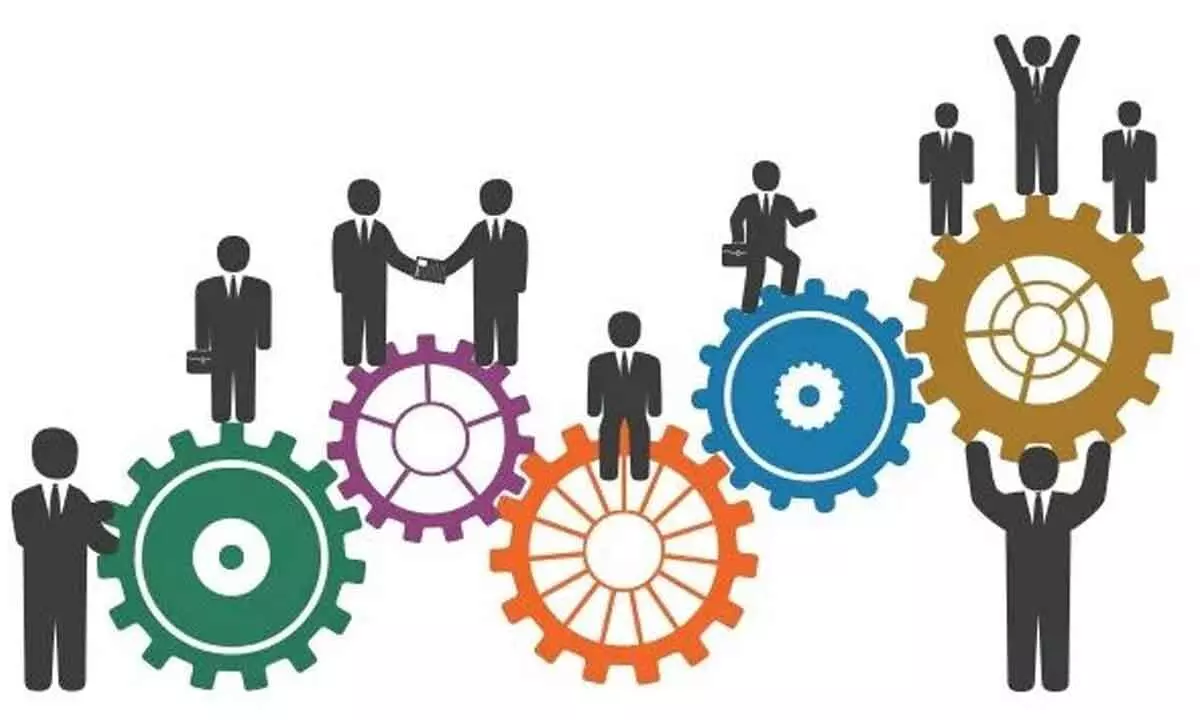Education and training in the future: Up-skilling & Re-skilling

With employees seeking for a steep growth curve, the global business scene shifting swiftly, and businesses confronting constant change prompted by continuing digital transformation, it's critical to rethink workplace learning and development (L&D).
With employees seeking for a steep growth curve, the global business scene shifting swiftly, and businesses confronting constant change prompted by continuing digital transformation, it's critical to rethink workplace learning and development (L&D).
Companies must give significant upskilling and re-skilling alternatives in addition to employee perks, such as medical, paid time off (PTO), and stock options, if they are to keep their top personnel. According to a recent PwC survey, 79 percent of CEOs are concerned about their workforce's present skills and capacity to fulfil changing workplace needs.
Up-skilling or Re-skilling
Although both up-skilling and re-skilling allow us to know new abilities, the context for each differs slightly. Up-skilling is concerned with assisting people in becoming more knowledgeable and developing new competencies related to their present position, whereas re-skilling is concerned with preparing employees to switch lanes and move to different roles within the firm.
In PwC's 22nd Annual Global CEO Survey, four out of five CEOs saw their staff' lack of vital skills as a danger to growth. While two-thirds of firms feel that workforce development efforts will assist to close the skills gap, they are hesitant to act due to financial constraints and a lack of appropriate technologies to enable internal initiatives. However, if you do not take action today, the company's capacity to accomplish its long-term objectives is jeopardised if you do not even have access to the necessary talents.
Up-skilling and Re-skilling is essential
Skill development has always been vital, but current events have increased the stakes. We are now in what is commonly referred to as the "Fourth Industrial Revolution," a period in which developments in artificial intelligence and automation are altering the way we work. Considering the rate of change is quickening, gaining new talents can no longer be an afterthought.
Instead, evidence indicates that upskilling and re-skilling are necessary for success. As technology advances, the World Economic Forum projects that 50% of all employees would require re-skilling by 2025. While the rise of automation and AI isn't expected to drive employees out of the labor force, the World Economic Forum expects that it will create up to 133 million new jobs. And, while this is excellent news, these professions will demand new sets of expertise, which is where the growing requirement for upskilling and re-skilling comes into play.
Employees can benefit from re-skilling and upskilling
Maintain a steady job and benefits
The most important advantage is having a solid employment with a caring firm and being able to handle everyday expenses. The second reason employees opt to stay with a company is because of its benefits. Employees can re-skill in order to move on to a more difficult and well-paying position.
Opportunities for advancement and role diversity
Knowing that there is a possibility of advancement inside the organization is a significant motivation for employees. Rather of being stuck with the same responsibilities and pay rate perpetually, upward mobility inside a corporation allows you to move up the ranks. With any promotion, greater responsibilities are anticipated within that post. With that comes the opportunity to gain new skills, which is at the heart of re-skilling and upskilling.
It's critical to understand that not all skill development is done to advance one's career, though this may be advantageous in the future. When there is economic instability, re-skilling gives employees a better chance of sticking with the organization. The primary purpose of re-skilling is to keep a job inside the organization, not to advance. However, the more abilities an individual acquires, the more likely they are to be considered for varied or advanced tasks. Re-skilling can be viewed as a springboard for people who want to broaden their abilities and advance in their careers.
Personal development
Personal development provides a sense of fulfillment, which is why people try to learn new skills, complete DIY projects, and pursue hobbies. That sense of accomplishment carries over into the workplace.
Whether re-skilling entails learning a significantly different function or one with only minor distinctions, you'll feel good knowing you're bettering yourself. Employees' worth inside the organization grows as they learn new abilities. This increases their employment stability, but it may also create options for them to work for another company if they so desire.
Creating a process for lifetime learning
Lifelong learning is an important habit in everyone's life, whether they work or not. It does not have to be a difficult process; you can learn new things, mostly without even realizing it.
Being a lifelong learner, on the other hand, improves your life in general and makes you more appealing to employers. Lifelong learning is also a feature that many employers may seek for when promoting someone inside the organization because it demonstrates initiative.
Summing Up
Employees can learn new skills and retrain in order to move to a more demanding and well-paying position. Re-skilling might serve as a springboard for people who want to increase their abilities. As employees learn new talents, their value inside the business grows. In the future, blended learning will be a major priority for L&D. An organization's learning and development department must establish a clear link between what workers are learning and their current/future job duties. This will encourage them to devote time and effort to their own growth.














